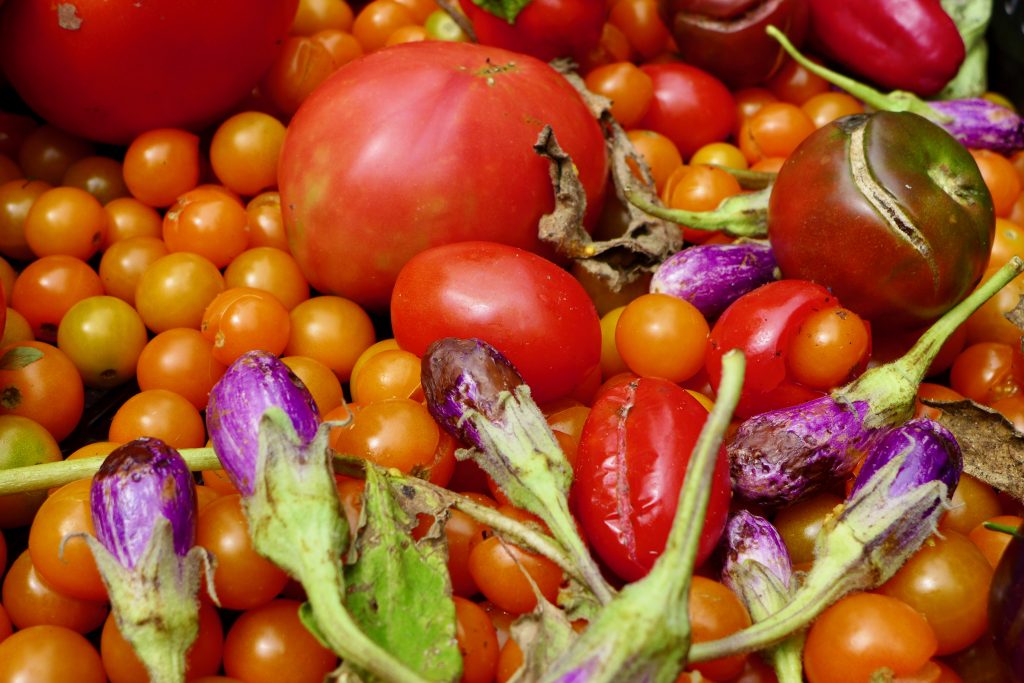Eighth Sunday in Ordinary Time
If you are looking for someone to teach you how to grow some lean, mean, shriveled up, malnourished and undersized bell peppers – I’m your girl. I could teach you how to grow some nice invisible eggplants as well. How about a strawberry plant that produces one whole strawberry all summer that (before you even find it) has already been eaten by some selfish caterpillar? Yup. Look no further – I will teach you everything I know.
And what do I know? Not much.
During the lock-down two years ago, my husband and I had a naive (and very short lived) fantasy of becoming pseudo-self-sustainable homesteaders. Seemed like a good idea at the time. We had a garden plot already in our backyard from the previous homeowners, so we thought, “Why not? Let’s give it a go.” We tilled the earth, dug some holes and chucked some Home Depot plants in the ground. Did we read any books about gardening? No. Did we properly care for the plants? Prune them? Fertilize the soil? Well…no. Did we harvest when things actually grew? (One lettuce plant DID grow, but I took a bite out of a leaf and decided I didn’t like it.) So pretty much no.
Did we ask for advice? Yes actually. Our kindly friends (and veteran planters) wrote out a whole list of other garden-y things for us to do. Did we follow their advice? No. It seemed like way too much of a commitment. It was also a long list and we got bored and gave up.
In the first reading today, Sirach (basically Yoda of the Old Testament) says “The fruit of a tree shows the care it has had, so too does one’s speech disclose the bent of one’s mind.” I found this passage striking, not only because I’m guilty of poor plant care – but also because today I had a particularly difficult day and found myself complaining out loud and saying some pretty dramatic things about how hard my life is, etc… So my speech was disclosing what was going on in my mind – hopelessness, lack of trust, despair. And what was that a result of? How did I get to that place in my mind? Had I (like my farming fiasco) failed to cultivate hope? Had I neglected seeds of inspiration, faith and love that the Holy Spirit had sown into me?
In the Gospel, Jesus echoes Sirach in different words: “A good tree does not bear rotten fruit, nor does a rotten tree bear good fruit. For every tree is known by its own fruit.” He goes on to say, “A good person out of the store of goodness in his heart produces good, but an evil person out of a store of evil produces evil; for from the fullness of the heart the mouth speaks.” So, what we say reveals our heart, and we have to be careful to cultivate the right things in our heart. Sirach takes this a step further and notes that, in tough times and struggles, what comes out of our mouth reveals our character.
What is your knee jerk reaction when something doesn’t go your way? When everything you try fails? Do you curse or scream? Do you launch into a monologue about how unfair everything is? It can be difficult not to do those things, but I was recently inspired by a teen in my youth ministry program who casually mentioned to some other guys that he had made the decision to never curse. I thought that was really interesting to hear from a 15-year-old. He explained it was because no matter how mad or frustrated you might be, cursing wouldn’t make the situation any better, only worse. And it works both ways too – if we have control over what we say, it helps us have more control over what’s in our mind and heart.
So, let’s be careful to tend virtue in our hearts and put clean things into our mind, so that we don’t bear rotten fruit – in our speech, actions – or in our actual gardens. Let’s speak some good words and bear some good tomatoes! But the eggplants can stay invisible, because eggplants are gross.





